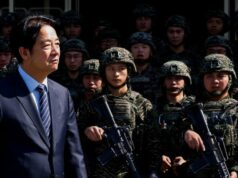The conflict in the Middle East reached a new level of tension as the Israeli Foreign Minister Israel Katz recently responded to Iran’s warning of an “obliterating war” with a stark message of his own.
Israeli foreign minister issues threat
The Israeli foreign minister declared on social media that “a regime that threatens destruction deserves to be destroyed.” Furthermore, he issued a warning to Hezbollah, the Iran-backed group in Lebanon, stating that Israel would use full force if the group continues its attacks from across the border.
This heated exchange follows Iran’s UN mission’s statement that an “obliterating war” could ensue if Israel launches a full-scale military operation in Lebanon. The Iranian mission also hinted at the possibility of involving “all resistance fronts” in such a scenario.
Netanyahu has however called for diplomatic solutions
Meanwhile, the ongoing conflict between Hezbollah and Israel has been running parallel to the Gaza war since October. Despite the escalating tensions, Israeli Prime Minister Benjamin Netanyahu and Defence Minister Yoav Gallant have expressed a preference for diplomatic solutions to the Lebanon situation.
However, the situation becomes more complex when considering Iran’s nuclear ambitions. In May, an adviser to Iran’s Supreme Leader suggested that Tehran might reconsider its nuclear doctrine if the Israel-Hamas conflict escalates further. This statement has raised concerns about Iran’s previous commitments to peaceful nuclear use.
Iran threatens to change military doctrine
Kamal Kharrazi, the Iranian official in question, stated that Iran has no current plans to build nuclear weapons. But if a threat to its existence arises, it would have to revise its military doctrine.
As tensions continue to rise in the region, the international community watches closely. The potential for further escalation remains high, with both sides seemingly unwilling to back down from their positions. The coming weeks and months will be crucial in determining whether diplomacy can prevail or if the region will face even greater instability.
With inputs from Reuters
Traveller, bibliophile and wordsmith with a yen for international relations. A journalist and budding author of short fiction, life is a daily struggle to uncover the latest breaking story while attempting to be Hemingway in the self-same time. Focussed especially on Europe and West Asia, discussing Brexit, the Iran crisis and all matters related is a passion that endures to this day. Believes firmly that life without the written word is a life best not lived. That’s me, Ashwin Ahmad.





